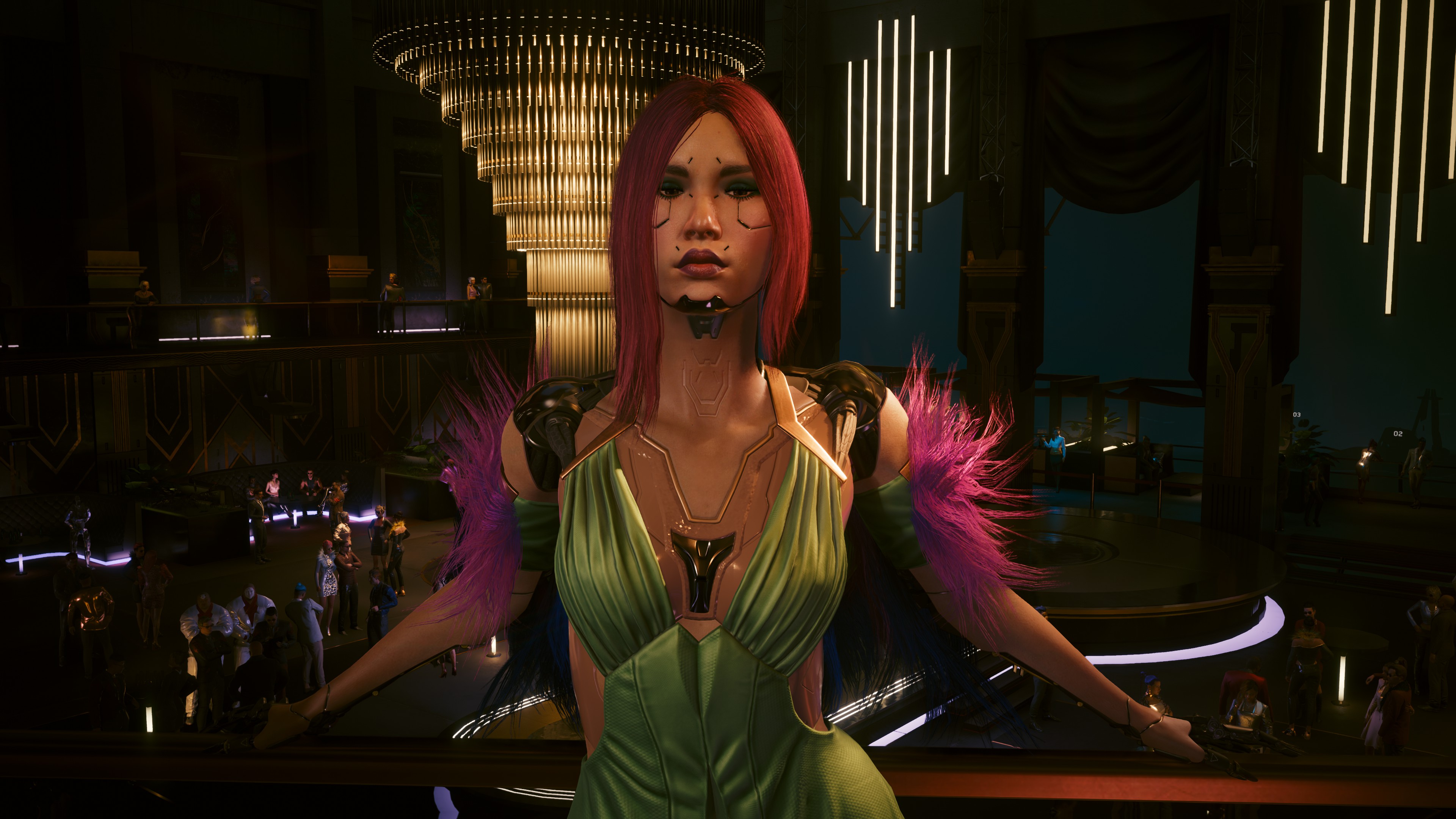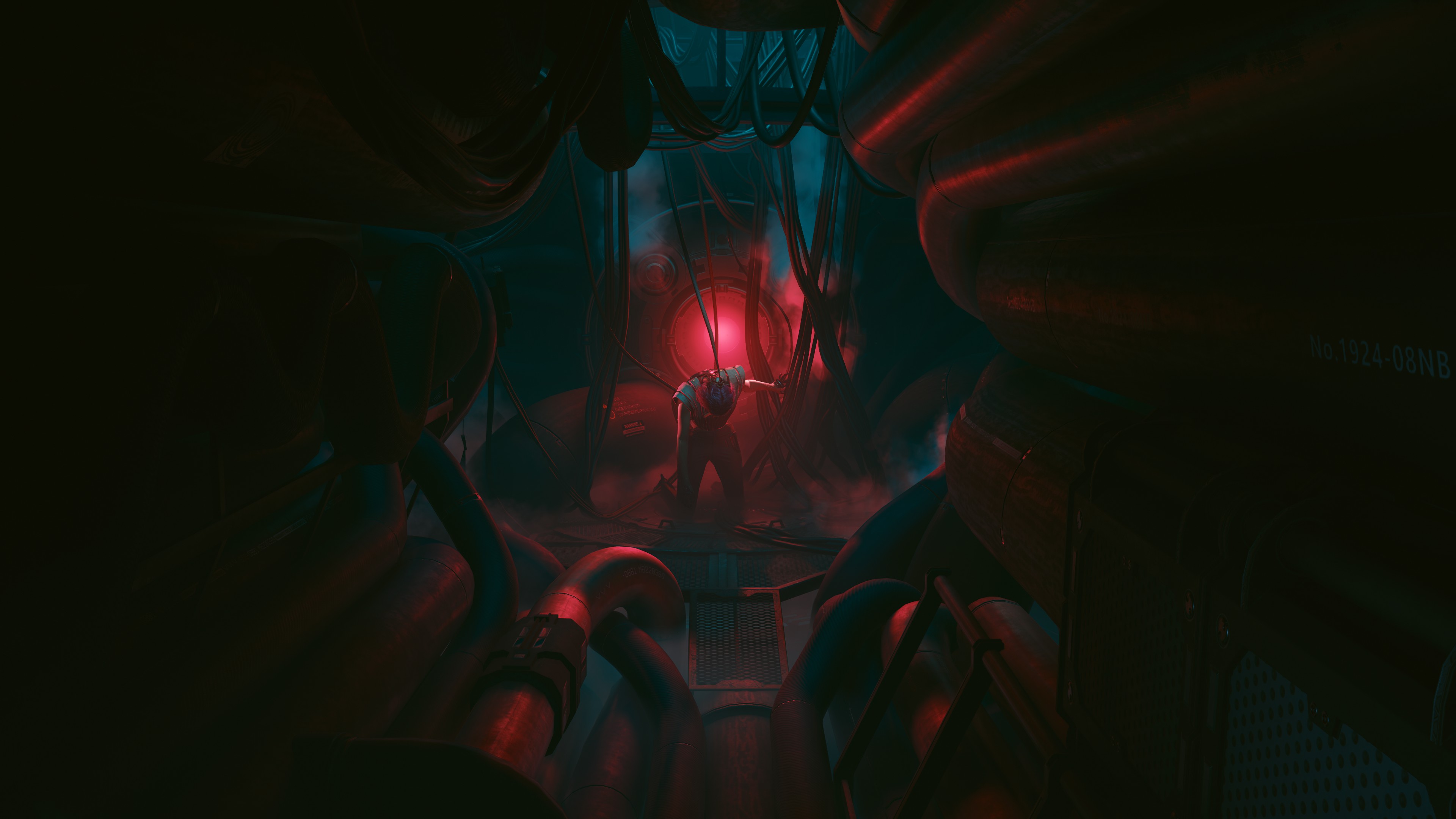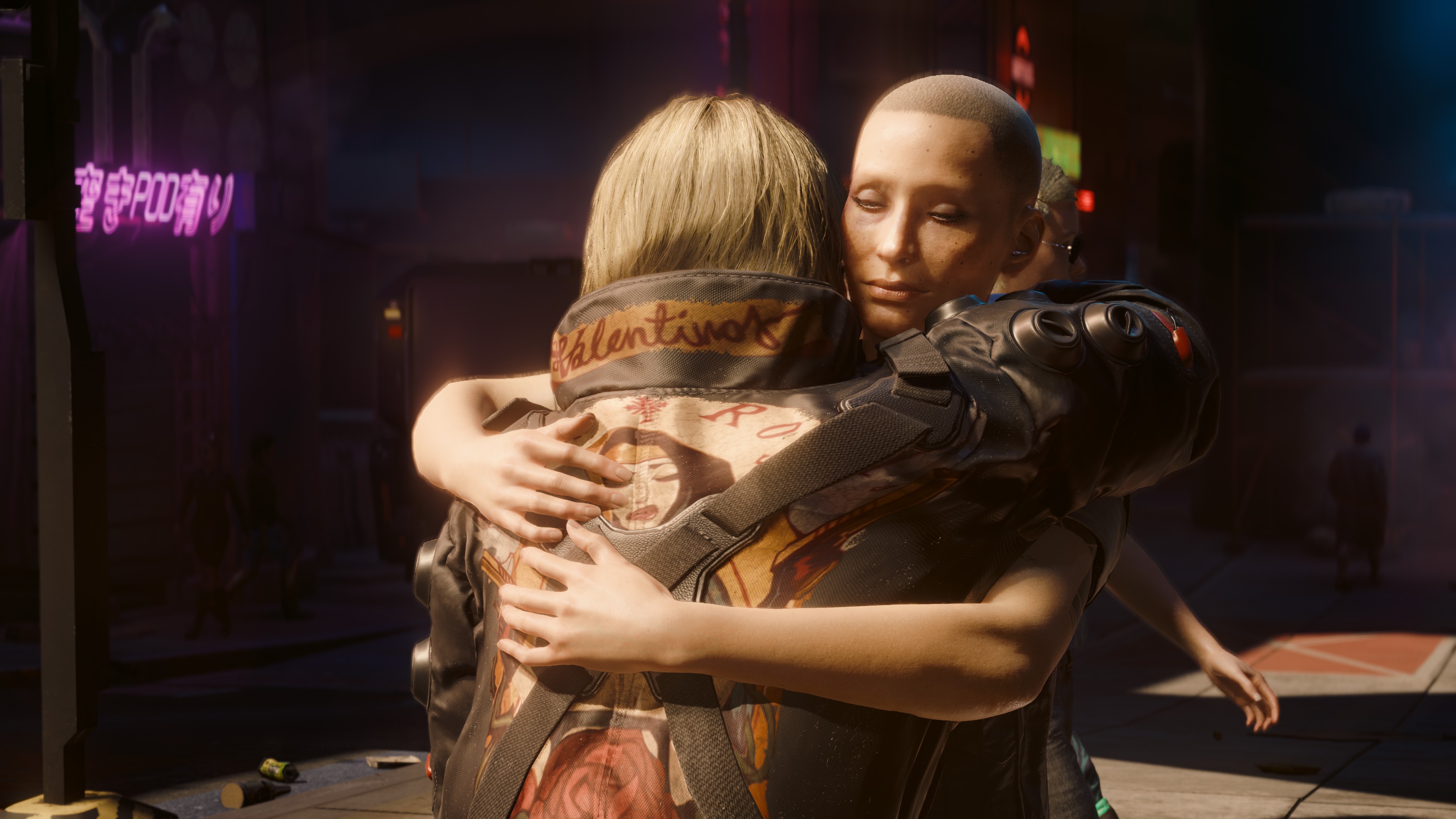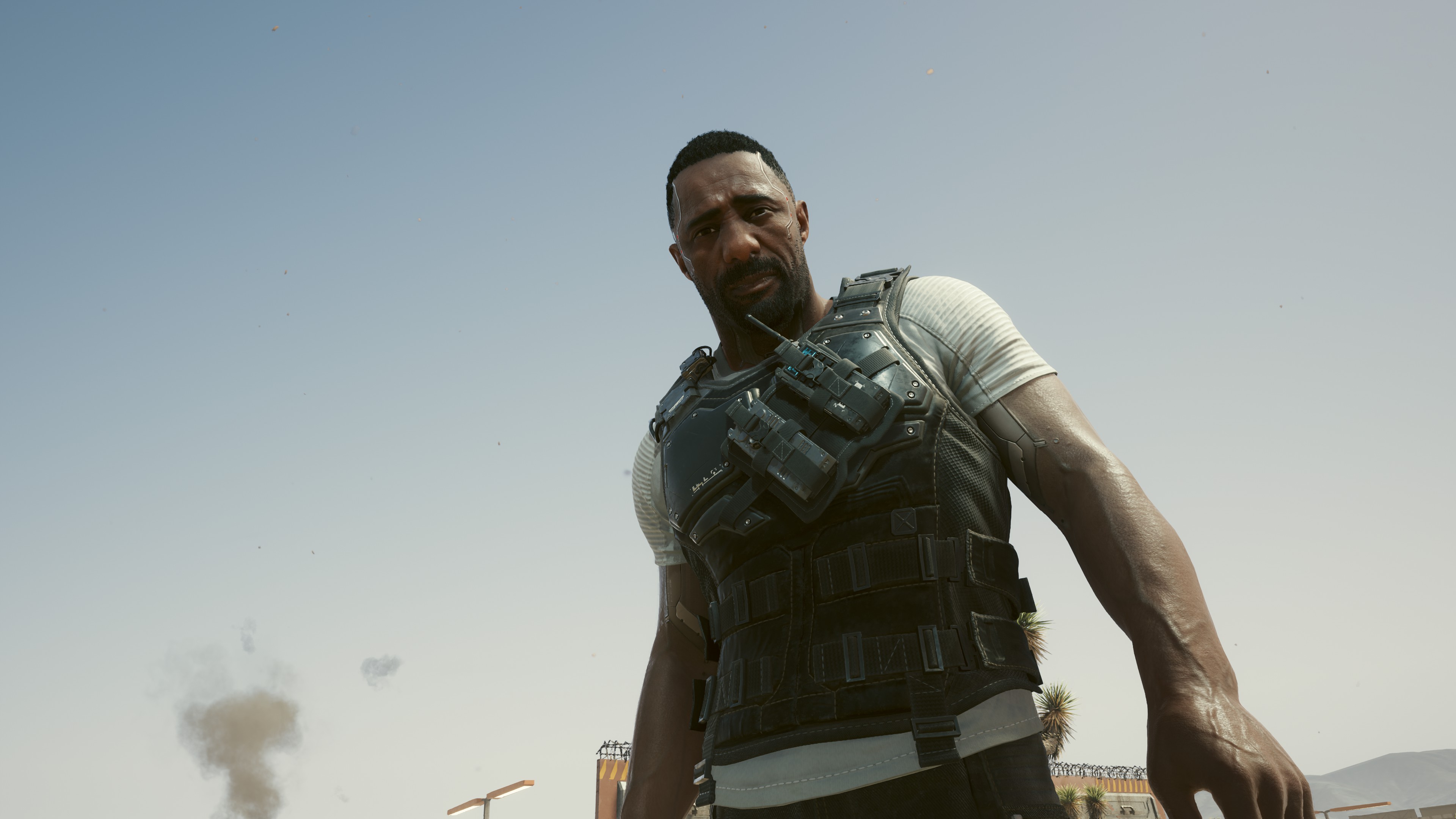In 2015 I blazed through The Witcher 3, loving every second of it, and at its conclusion was treated to what I thought was easily the game's "best" ending. Then I did the same thing with both its expansions. By the time I was finally done with the series I'd convinced myself I was playing these games so well I'd become the best Witcher on the planet, The Witcherest, someone whose instincts were at one with Geralt's own.
A few years later along came Cyberpunk 2077, and I did the same thing. I blitzed through what I felt was the "best", most appropriate ending for my character, in the process becoming the most cyber punk cyberpunk. I could--I deluded myself into thinking--read these developers like a book, making the right choices at the right times to end up with exactly the kind of rewarding conclusion I was looking for.
Note here of course, before we go any further, that there is no such thing as the "best" ending to any of those games. Nor am I saying that achieving a "good" ending is the whole point of playing. Each conclusion to each tale is entirely subjective! What I'm saying here is that the endings I had played to happened to be the ones I thought most appropriate for my character/playthrough, and that I'm talking about endings in particular here because Cyberpunk expansion Phantom Liberty's knocked me on my ass.

It's an expansion that’s also something more; as so many people have been breathlessly insistent for months, it was the final narrative brick in a road to redemption, a chance for CDPR to make amends for Cyberpunk's disastrous launch. So in addition to a new storyline, new characters and new ending came some big updates--hence the deeply symbolic "2.0" branding--to the game's systems, all of this combining to serve as a kind of kintsugi to the 2020 game, a thing not just repaired, but made more whole and beautiful in the process.
Having only just finished the game for the first time back in March I didn't find Cyberpunk’s repair job that impressive; I think work already done over the past two years had already made a huge difference to what had been for me a borderline unplayable video game in 2020. Anyone rushing to call this a game suddenly redeemed, I figured, clearly hadn't played it in the intervening years.
I enjoyed Phantom Liberty! It starts off slow, and certainly has its share of issues. Dogtown is a miserable shell of a place, and the main villain feels like he escaped from 2008's Haze, writing and all. But once it gets going, it's a refreshing change of pace (and scenery) from the rest of the game, more secret agent than supercyborg, with an intimate cast that feels largely firewalled from the main storyline's corny and cliched caricatures. The fact it also has several large-scale "heist" missions, each more memorable than anything in the main game, is also great.
SPOILERS
Being (supposedly) at one with CDPR's narrative intentions, I fought and snuck my way through Phantom Liberty's missions, sensing where the story was about to branch and making my decisions accordingly. Songbird seemed utterly corrupted by the blackwall, making her a threat to all humanity, so no, I did not let her go. And later, when she pleaded with me for death, that felt like a surrender, a moment of weakness born of her brave fight against everything arrayed against her, so I saved her life.
Choices made and locked in, I finished the expansion, moved onto Phantom Liberty's new ending for the main game and got ready to enjoy my hard-earned cinematics. "Here comes another flawless conclusion", I chuckled to myself, "can't wait to see what's in store for V after I made all these excellent choices".
WRONG. Holy shit was I wrong. What followed was the grimmest succession of cutscenes and dialogue options imaginable.

I thought the FIA could save Songbird, but no, she ends up even more trapped than she was before I'd met her. Reed revealed himself to be a company man to the end, the loss of everyone close to him reducing him to a miserable shell. I did at least get life-saving surgery, which mercifully rid me of Johnny Silverhand, but this came at a huge cost: I could no longer cybernetically augment myself, which was...the whole point of the game. Tired, depressed and waking from a two-year coma with no friends and no job prospects, things sure looked bleak for me on my return to Night City.
Ah well, I figured, at least I'd get a little consolation cutscene with my old pal Vik. We'll share a bottle, kick back, remember some good times. But no! Things just got worse! Vik had sold out to a corp and, powerless after my surgery, I was brutally mugged by two street thugs--who earlier in the game I could have turned to red mist without blinking an eye--and left for dead.
Saved by a departing Misty--the only character who seems to be getting a decent send-off in this ending--her only advice to me as she left Night City for good was "well lol, you're just a regular piece of meat now, sorry, good luck", before the game's audio boosts a cacophony of pedestrian noise to really hammer home the fact that my V, once Queen Of The Night, was now a nobody, perhaps only hours/days/weeks away from winding up as just another anonymous casualty of one the city's more powerful inhabitants.
Jesus Christ. I was so bummed. I'd played all this game for...this? To have everything I'd done undone at the last? This is not the ending I saw coming, nor was it anywhere close to the ending I'd envisaged for my V. I have had it argued to me that this is actually a "good" ending, that it shows there was a way out for V other than a grisly death in the middle of a shootout, but I don't buy it. It's in no way framed to be that optimistic. Every beat of this finale's story is a miserable one, and it makes sure your nose is rubbed in it at every possible opportunity. As the final time I was ever going to play the game it threatened to sour my entire Cyberpunk experience, much the same way my colleague Riley has been left forever numbed by his Bad Dad Ending in The Witcher 3.

I could have reloaded an old save and made different choices to soothe the pain, or even just hopped on over to YouTube to watch the alternatives, but no. I did neither. I deserved this. What did I think I'd been the master of, exactly? Winging some dialogue options made by writers I'd never met? Did I think I could game these things, as though I was unpacking the secrets of a 2011 Buzzfeed personality test?
No, I'd just got lucky. Lucky with The Witcher 3 that I'd made the right call every time the game made an invisible coin toss, and lucky with Cyberpunk that the original ending I got--in a game with no real "good" endings--was one I could at least talk myself around to having been good because it meshed with my understanding of the world's vibes and my contributions to them.
My despair was a solid reminder that, while many games profess to have multiple endings, they often boil down to "good" and "bad" ones (see my opening comments!), our perceived quality of them corresponding mostly to whatever central narrative the developers clearly want to push (or at least have you experience).
While Cyberpunk's main game was a rare exception, in that most of its original endings left things pretty open to your own interpretations, Phantom Liberty's new conclusion never stops rubbing your nose in your mistakes. CD Projekt Red very much wanted me to know that Songbird should have been freed, it's right there in the character's name! I should never have trusted Reed, he was a company man! I should have known I could never truly be rid of Johnny, because the whole point of the game is that he's there for the ride! I fucked all that up, and was duly punished for it.
If Phantom Liberty really is the last time I'll be playing Cyberpunk 2077, there's a certain poetry to the fact that, having found so much to love between its bungled launch and my eventual enjoyment, I'll be leaving the game the same way I first found it: profoundly sad and disappointed, redemption arc be damned.



